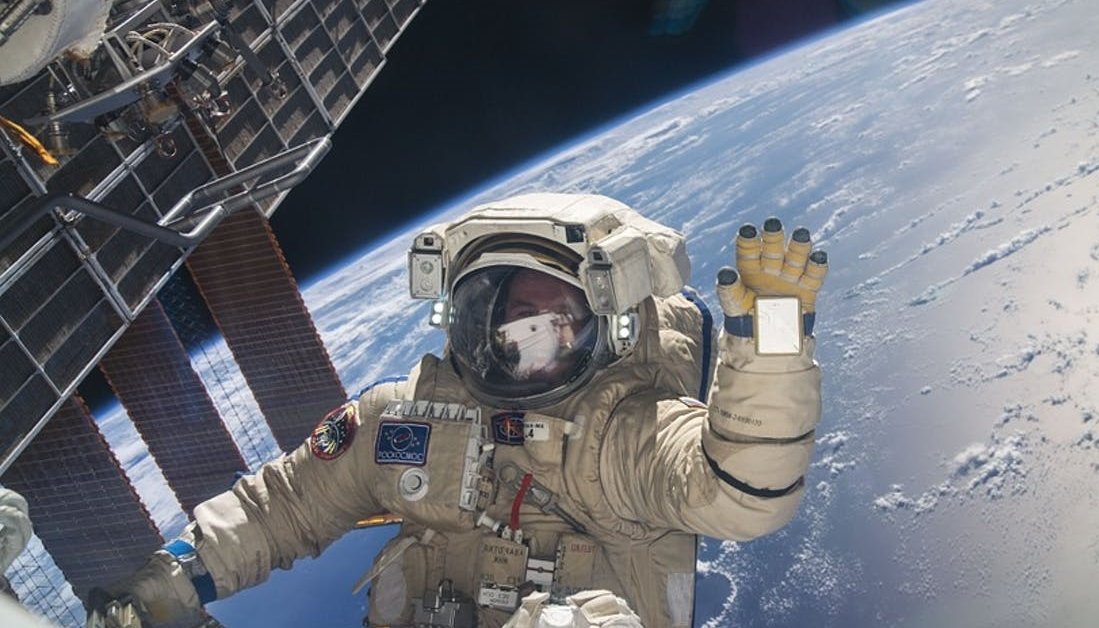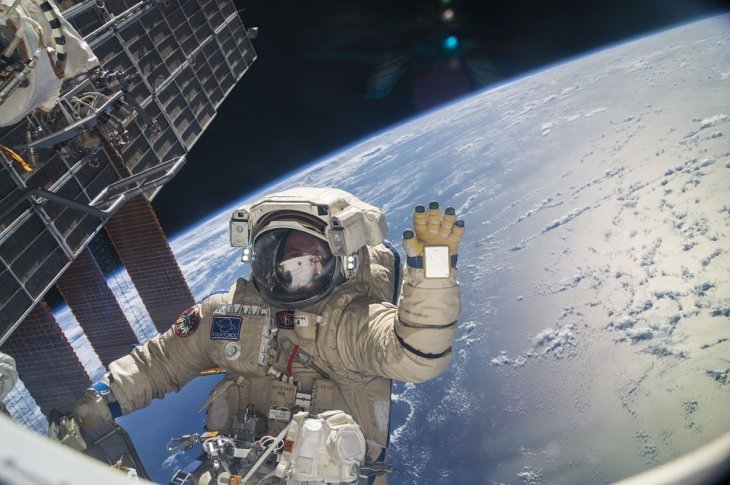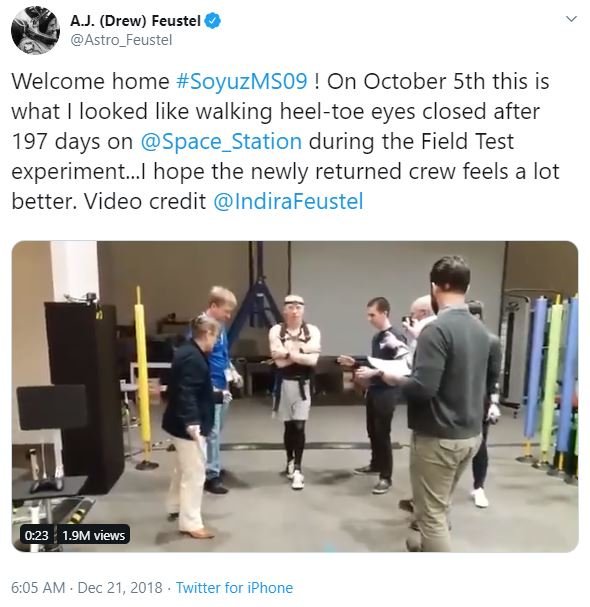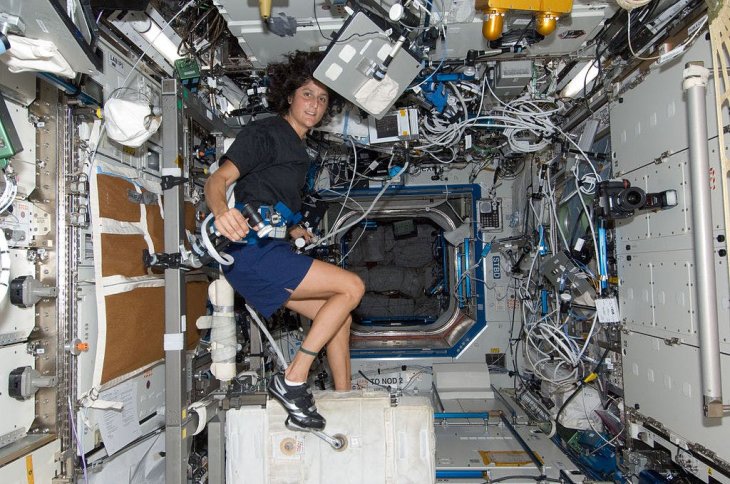Muscle Injections Will Help Astronauts Quickly Recover From Spaceflights
Dhir Acharya - Apr 30, 2019

When astronauts stay in space for a long time, their muscle mass and bone density reduce because of the lack of gravity.
- Astronauts Will Be Put In Hibernation For Deep Space Travel
- Astronauts To Be Trained In Deep Cave For Future Space Missions
- There Are Now Artificial Muscles That Work Just Like Real Ones
After 197 days in space, NASA astronaut Andrew Feustel came back to earth in extremely good health condition. However, he faltered when taking his first steps under the impact of gravity. Just like other astronauts, his muscles suffered from ravages of microgravity. Luckily, new research says that this can be treated through well-placed injection.
While it’s cool to experience weightlessness in outer space, the adverse effect is also considerable. When astronauts stay in space for a long time, their muscle mass and bone density reduce because of the lack of gravity. NASA provides rehabilitation programs to help them recover when returning to Earth, but the new study’s first author Marni Boppart, Ph.D., believes that by directly injecting cells into muscles, she can jumpstart the process.

According to a mouse trial published in FASEB on Thursday, the author illustrated that the muscle injections, made from pericytes, improved that regrowth of muscles in mice with muscle loss, which human astronauts undergo during spaceflight.
Boppart, who is also an associate professor at the University of Illinois Beckman Institute, said that in spaceflights, astronauts can contract their muscles, but there's no mechanical stimulus to help maintain the muscle mass, so they were considering the use of those cells during the recovery process along with the exposure to the microgravity environment.
Pericytes, found around muscles’ blood vessels of both mice and humans, degrade when muscles aren’t active while muscles mass decreases. Boppart’s experiment involved watching the muscle fibers and pericytes decrease at the same time: compared with regular mice, mice with immobilized hind limbs for 14 days lost muscle fibers and pericytes more quickly. A similar phenomenon occurs when muscles atrophy due to inactivity.

To recover lost muscles, we need energy, time, as a slow physical therapy process, but Boppart’s strategy will help make things go faster. When reinjecting pericytes into the mice, they spotted a huge difference in the recovery process. After two weeks, the mice receiving the injection had recovered entirely while control mice still underwent significant muscle mass loss.


Not just replacing lost muscle cells, Boppart believes that pericytes excrete extracellular vesicles, extremely small packages sometimes used by cells for communication, of therapeutic agents which enhance the regrowth of muscles and capillaries.

As the human studies go further, Boppart will likely develop a customized muscle-recovering injection which helps restore the muscle along with exercise. These injections are expected to take astronauts less time to readapt to life on Earth after spaceflights and even help those who have spent a long time recuperating in hospitals get back their normal life.
While there’re still a lot of tests to do with this process, the findings surface at a critical time, when the world is sending more and more people into space.
Featured Stories

Features - Jan 29, 2026
Permanently Deleting Your Instagram Account: A Complete Step-by-Step Tutorial

Features - Jul 01, 2025
What Are The Fastest Passenger Vehicles Ever Created?

Features - Jun 25, 2025
Japan Hydrogen Breakthrough: Scientists Crack the Clean Energy Code with...

ICT News - Jun 25, 2025
AI Intimidation Tactics: CEOs Turn Flawed Technology Into Employee Fear Machine

Review - Jun 25, 2025
Windows 11 Problems: Is Microsoft's "Best" OS Actually Getting Worse?

Features - Jun 22, 2025
Telegram Founder Pavel Durov Plans to Split $14 Billion Fortune Among 106 Children

ICT News - Jun 22, 2025
Neuralink Telepathy Chip Enables Quadriplegic Rob Greiner to Control Games with...

Features - Jun 21, 2025
This Over $100 Bottle Has Nothing But Fresh Air Inside

Features - Jun 18, 2025
Best Mobile VPN Apps for Gaming 2025: Complete Guide

Features - Jun 18, 2025
A Math Formula Tells Us How Long Everything Will Live
Read more

Mobile- Feb 17, 2026
Anticipating the Samsung Galaxy S26 and S26+: Key Rumors and Specs
The Samsung Galaxy S26 series is on the horizon, sparking excitement among tech enthusiasts.

ICT News- Feb 19, 2026
Escalating Costs for NVIDIA RTX 50 Series GPUs: RTX 5090 Tops $5,000, RTX 5060 Ti Closes in on RTX 5070 Pricing
As the RTX 50 series continues to push boundaries in gaming and AI, these price trends raise questions about accessibility for average gamers.

ICT News- Feb 18, 2026
Google's Project Toscana: Elevating Pixel Face Unlock to Rival Apple's Face ID
As the smartphone landscape evolves, Google's push toward superior face unlock technology underscores its ambition to close the gap with Apple in user security and convenience.
Comments
Sort by Newest | Popular